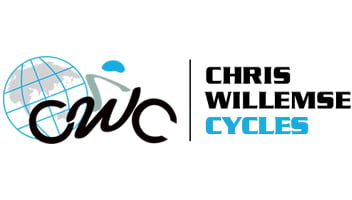In the big world of e-commerce, there are many proprietary e-commerce solutions that large corporate and SME’s (small to medium enterprises) identify with.
In the large corporate world a few examples are the likes of SAP Hybris, Amazon Merchants, Magento and Demandware (recently acquired by Salesforce).
Smaller merchants generally make use of Shopify, Squarespace, WooCommerce and Wix to name a few.
A fast-emerging solution that is rising up the ranks in both e-commerce spaces is that of Drupal Commerce.
A brief introduction to Drupal
Drupal is an open source CMS (Content Management System) founded by Belgium-born, Dries Buytaert, in 2001 and is currently being used by over 1.2 million websites globally.
This growth is made possible by Drupal leveraging its international community that comprises of developers and supporters who contribute modules, themes and other extensions that broaden the CMS’s ability to cater for most demands. This is accompanied by large organisational and government uptake as a result of open source being a financially competitive option.
Governments that make use Drupal span from Albania to Zimbabwe. A notable example among these is the United States’ White House website.
Drupal is fast becoming recognised as the global front-runner when it comes to content management.
This statement, aside from Drupal’s usage and government uptake, is further validated by Acquia’s achievement at being named Leader in WCM (Web Content Management) in Gartner’s Magic Quadrant for three years running where it competes with the likes of Adobe, Oracle and IBM.
Acquia is a Drupal company owned by Dries Buytaert and is seen as the "business end" of Drupal.
That’s fantastic, but how is Drupal when it comes to e-commerce?
Although primarily identified as a strong contender when it comes to contend delivery, Drupal also has the ability to compete with some of the best proprietary e-commerce providers in the market. What makes this possible is varied, but can be attributed to the following:
- Drupal’s commerce modules cover most basic requirements of a small e-commerce website out of the box,
- Drupal Commerce is flexible and features a lot of customisability compared with other proprietary solutions which tend to be rigid,
- Drupal commerce is highly scalable which allows a store to grow in size and complexity over time,
- Drupal’s large community provides commerce developers with a literal sea of troubleshooting material, and;
- Drupal commerce can leverage Drupal’s strong content delivery system to drive traffic to your store.
The above sounds compelling, but surely Drupal has its faults?
Like any solution, Drupal is not perfect.
Drupal has quite a steep learning curve for most developers when confronting it for the first time.
For the most part this has been addressed by the new Drupal 8 release, where the administration interface has been significantly improved, and Drupal has moved to object oriented PHP, whereas previous versions of Drupal were exclusively procedural PHP.
Development of a Drupal e-commerce store can be pricey, especially if it is catering for a large corporate enterprise with complex requirements. This is especially the case when moving from older platforms where large migrations are needed and when integrating with various ERP (Enterprise Resource Planning) systems.
Although Drupal Commerce can be pricey depending on requirements, the costs involved in achieving results in the long run tend to be cheaper than those incurred when using proprietary software.
Drupal fails to provide native analytical data when compared to the likes of a system such as Magento.
Having analytical data on user interaction and store purchases at your fingertips is a great feature which can be built into Drupal. All user interaction can also be tracked on Google Analytics which, if you’re operating an e-commerce store, is a strong tool that you should already be making use of.
Conclusion
As Drupal’s strengths far outweigh its weaknesses, it goes without saying that this is an e-commerce website solution worth investing in.
If you’re looking to start an e-commerce store and are in it for the long haul, you should look no further than finding the closest Drupal experts for a consultation.
Want ideas? Check out some of these successful South African e-commerce sites:
 |
 |
 |
Email us or give us a call on +27 21 975 8181 and a Rogerwilco client services representative will get in touch with you for a quote.
Need Assistance with Digital Strategy?
Rogerwilco’s team of strategists, business analysts and data scientists is here to help.





